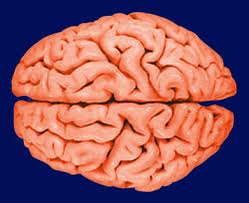
The brain is smarter structured than thought
Calcium is essential for all brain functions. But now researchers at the University of Copenhagen discovered that the otherwise important substance is not - as otherwise previously assumed - affects brain cells' energy metabolism. The discovery brings scientists closer to understanding brain disorders such as migraine, autism and Parkinson's disease and provide important knowledge about what happens in the aging brain.
The discovery has just been published in the renowned journal Journal of Neuroscience. - My group investigates nerve cell metabolism to understand the whole brain metabolism, says postdoc Claus Mathiesen from the Center for Healthy Aging at the Faculty of Medicine. - We have come across the surprising result that the way the neurons, ie nerve cells create and use energy smarter than previous experiments in test tubes with tissues and biochemistry otherwise suggest. The smarter and simpler regulation of the brain's energy production is beneficial for the brain, which can function as needed and does not rely on complex biochemical signaling, says Claus Mathiesen. Researchers from the University of Copenhagen have discovered that the brain makes energy based on the simple needs and not through ingenious signaling pathways. Each neuron has its own small power plant, the mitochondria, which produce the cell's energy, ATP, using oxygen and sugar. All the molecules to the cell either needed or must discard, is gated in and out through the cell membrane by means of acute, biochemical lock systems that respond to as intricate biochemical signaling call.
High-tech equipment revealed calcium-independence
- Our two-photon equipment, which is a special imaging tool, we can see into the brain, and to see that calcium levels rise, in the brain activity, elaborates Claus Mathiesen. - Calcium triggers all brain adjustments, upgrades, repairs and so on. But just when it comes to energy metabolism in nerve cells to make energy molecule ATP from oxygen and sugar, so it can easily be done without calcium. Claus Matthiesen's research group has arbejdedet with advanced measurements of whole brain activity and metabolism in animal models right down to the cellular level. Here, the researchers could see that the brain cells' production of ATP remained unaffected by the fact that they prevent calcium from entering. It shows a difference of studying the whole brain in living beings and to look at tissue samples in a flask in the lab. - We were quite surprised by the result, as experiments with cell samples in test tubes have shown that calcium plays a role in energy metabolism. It is deeply interesting that there is so much a function difference between a sample and the living body, says Claus Mathisen. - Instead, it is the consumption of ATP, which triggers the production of ATP consumption of oxygen that controls cell working to pump salts across the cell membrane.
Error in brain metabolism
- The discovery helps us understand more about the whole brain metabolism, and how the brain works as a body. It is knowledge that can help us to uncover the causes of the diseases of the brain, which occurs when parts of the brain cells die suddenly or begins to malfunction, and inappropriate as migraines or Parkinson's. Autism occurs, for example, because some parts of the brain energetically speaking, hyperactive, while others are almost dormant, and it shows that the healthy brain must be in a perfect energy balance in order to function, emphasizes Claus Matthisen.
Source: KU

